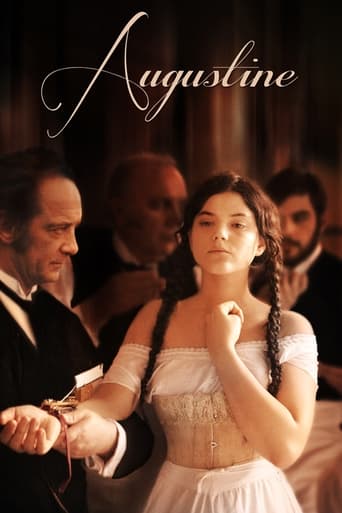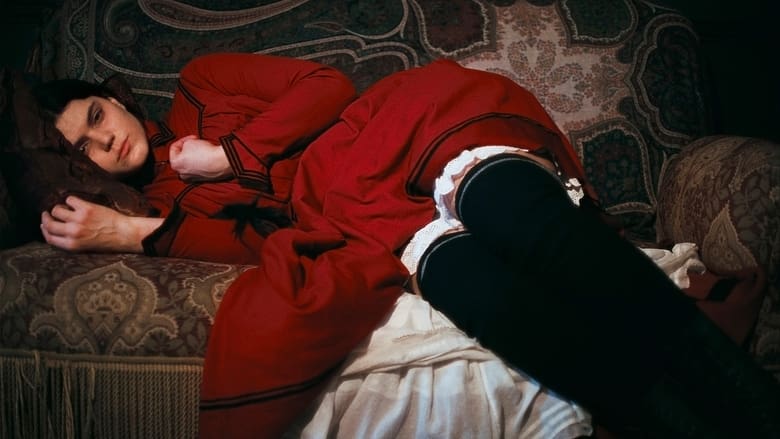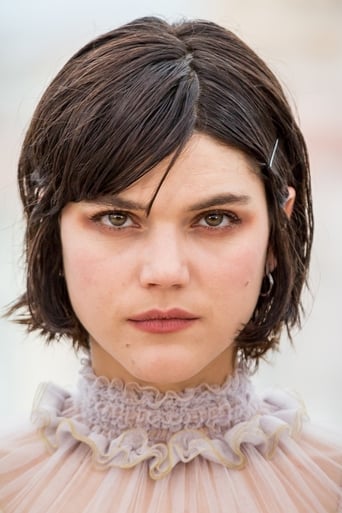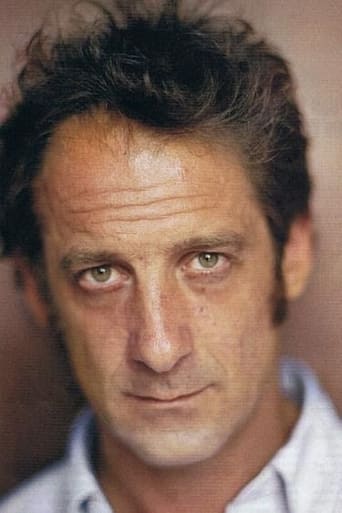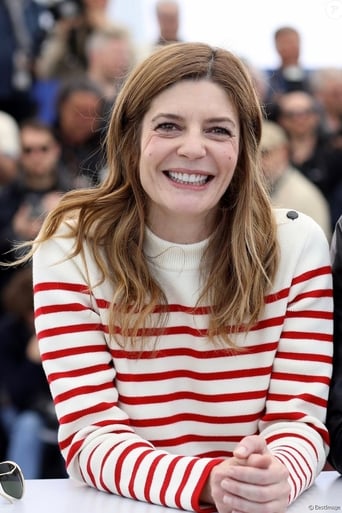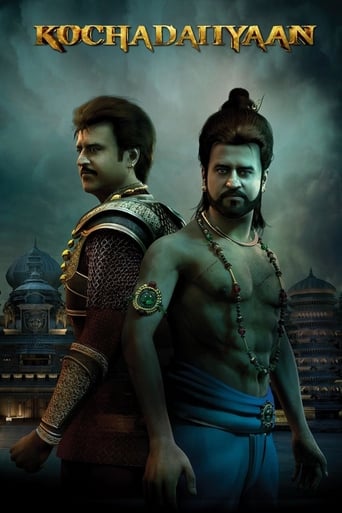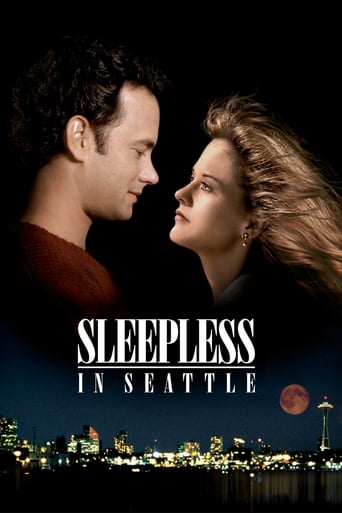Augustine (2012)
Set in Belle Époque France, the story follows nineteen-year-old "hysteria" patient Augustine, the star of Professor Charcot's experiments in hypnosis, as she transitions from object of study to object of desire.
Watch Trailer
Cast
Similar titles



Reviews
Did you people see the same film I saw?
Excellent and certainly provocative... If nothing else, the film is a real conversation starter.
The best films of this genre always show a path and provide a takeaway for being a better person.
Great story, amazing characters, superb action, enthralling cinematography. Yes, this is something I am glad I spent money on.
This is rather a sensationalised and eroticized rendition of filmmaking loosely based on facts.Although well acted, well filmed and very intriguing throughout, it nonetheless did not treat the subject material in a way that fully depicted what countless many young women of the day endured: early sexual abuse and it's life-harming effects.One of the factual details that is notably absent from Winocour's film is the sexual assaults the young Augustine suffered at the hands of an employer with whom she was placed by her mother at age thirteen. The details of her rape do not get mentioned and neither does her trauma,or the information that the attacks began soon after.From the symptoms of her 'illness,' in this film, the causes or triggers for Augustine's episodes often feature in scenes of animal cruelty. The film does not treat her history of sexual abuse and it has Augustine enter the Salpêtrière at age nineteen, while, in fact, she was fourteen when she began her stay. Very much younger. Still a child.If the filmmaker had stuck to a factual rendition of how so many girls were sold or traded or sent off to work in situations where they were never protected, never able to protect themselves and where the theme of the day in most of Europe was early sexual abuse of horrific proportions, there may have been a film that explained how generationally women have been exploited, manhandled, marginalised and mistreated almost as point of course.A hugely wasted opportunity to make an important film.
This slow and subtitled French film that is based on actual events won't be one many are going to out-right enjoy although I found it to be rather interesting as I find its subject matter -- 19th century female hysteria -- to be most fascinating.The film is about Augustine, an illiterate young French housemaid (played by French singer/actress Soko), who suffers a debilitating seizure one evening while serving dinner that leaves her partially paralyzed. She is thus admitted to the Parisian psychiatric hospital, Pitié-Salpêtriere, where she is diagnosed as a hysteric (!) and treated by renown physician Jean-Martin Charcot (Vincent Lindon - Mademoiselle Chambon).The medical world of the 19th century was dominated by uber-intelligent men (that "intelligent" part could be debated) and it was common for a woman who experienced something that a man couldn't easily explain and/or understand to be diagnosed with "hysteria" (a "nice way" of saying a female sexual perversion). If a woman acted in any manner society found confusing or even slightly objectionable, she was a "hysteric" who could find herself institutionalized and subjected to some horrifyingly abhorrent and offensive "treatment(s)" at the hands of men who claimed a medical interest in her well-being.The time period and "understanding" of this predominately female ailment IS genuinely fascinating and if this topic sounds even remotely intriguing, I implore people to seek out the topic and read up on it as Augustine is merely about A case -- AN instance -- in this outrageously baffling era of medical (mal)practice when many male doctors found it to be en vogue and "fashionable" to make these diagnoses! The level of quasi-ignorance shared by these male "geniuses" in the medical field who simply did not understand women is mind-blowing.I think a better film would have focused more on the doctor and his evolving understanding of hysteria over the years that followed this brief amount of time spent with this one patient, Augustine. There is a reason the film was not entitled Charcot. Instead, the direction of Alice Winocour (a WOMAN!!!?!) has used a specific example to reveal a sad universal truth of the time and expose just how farcical this "ailment" was while subtly implying perversions may have lain elsewhere. As Winocour's first full-length feature film that is clichéd a time or two, she shows much promise. Diagnose that, Charcot! Again, the movie is hard to simply "enjoy" but it is one that could hopefully shed some more light on this bizarre chapter of modern medicine.
This is beautifully acted but of course you would expect that from the likes of Vincent Lindon and Chiara Mastroianni. It seems that the female lead, Soko, is also a pop singer in France and if so, and if she continues to act in films it's good to know that whatever their respective abilities as vocalists (and I know nothing of either) she definitely outclasses Vanessa Paradis in front of the camera. Apparently there was a real neurologist in 19th century Paris named Charcot so the chances are he also treated a patient called Augustine. I'm inclined to question, as did the other two people who have written here, the actual point of the film. As I said it's beautifully acted and well photographed but it seems to lead merely to the ultimate 'transference' between patient and doctor that's less than credible. Despite having a beautiful and desirable wife in the shape of Chiara Mastroianni, Lindon seems totally indifferent to sexual attraction and totally absorbed in his work. He is also played as a person who is himself totally lacking in charisma and/or sex appeal and not the logical object of desire by a girl who, at nineteen, is young enough to be his grand-daughter. These caveats to one side the film did hold my attention and its heart if nothing else is in the right place.
**SPOILER FREE***I couldn't write this entire review without spoilers but I'll write a short one without any. This is the story of Augustine, a 19 year-old woman who is sent to an asylum because she has crises and is apparently 'possessed.' She is treated by Charcot (Vincent Lindon) who was a real french doctor who worked with hypnosis to treat hysteria and made several advances in the field of Parkinson and sclerosis. Here however, Charcot's skills seem mostly to take off girl's clothes. Nothing is said about what Charcot really does or why he does it. He uses hypnosis to observe Augustine's crises but he doesn't really seem to care for the other patient. He quite obviously wants to sleep with Augustine and has a really nice monkey at home. That's what I walked away from. The film itself would have been quite good if not for major plot holes. Vincent Lindon whom I love, was quite fantastic in this, as usual, as was the girl playing Augustine. It seems the film is going somewhere until the very end when you realize it really isn't. It's too bad because, because Augustine was 'almost' a very good film. ***SPOILERS***Augustine, following one of the biggest crisis is left with paralysis on her right side (it seems she can still move however, but she can't open her eye and she can't feel anything.) She is obviously sexually repressed and at age 19, still doesn't have her period. Charcot writes in his diary that she is starting to feel better. She had a dream that animals were being bled and now she has her period! Like magic, because Charcot really didn't do anything in the film, as far as we're aware. Then she has another crisis and the paralysis moves to her left side. But she can still move everything except for her arm. Charcot undresses her a few times and decides he wants to present her to the academy to get more funding. But just before the presentation, she falls down the stairs and can move her arm! So she decides that she is healed (even though her main issue was her recurring crises) and she fakes a crisis at the academy, going all out to touch herself while looking Charcot in the eye. Huge sexual build up of course, so Charcot leaves everyone at the academy to go have sex with Augustine and then he lets her escape the asylum. So what is the morale of the film? No one realized just because her paralysis is temporarily gone doesn't mean she is healed? Was she just so horny it caused her not to move? They had really good substance and wasted it to make this film a sexual affair between Charcot and Augustine. I did still enjoy the film beyond that, I am disappointed.
